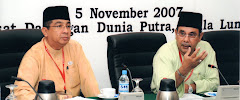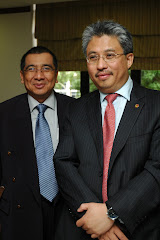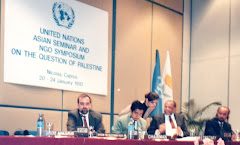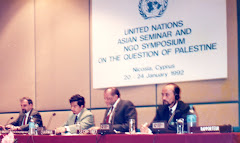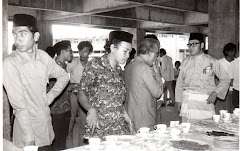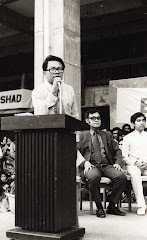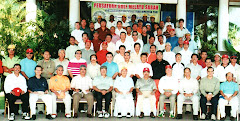OUTSPOKEN: It is timely for DAP stalwart Lim Kit Siang to ask if Pakatan Rakyat will still be around for the 14th general election due in 2018. Being its most senior leader, Lim had witnessed the demise of the Barisan Alternatif (BA) after the 1999 general election when a few DAP senior leaders including him had lost in the elections.
The parties, DAP, PAS and PKR, regrouped during the 2008 general election to form an electoral pact to ensure a straight fight between their candidates and Barisan Nasional’s. The electoral pact was largely a success and its stellar performance was repeated in the 2013 general election.
It is unfortunate that the three parties have failed to build on the success and are generally happy for status quo to prevail as long as the formation and collaboration can bring them electoral success on their own turf.
DAP is content with the unprecedented support it received from the Chinese community and its iron grip on the Penang state government. PAS would be happy if it can continue to lead the Kelantan state government and make electoral inroads into key Malay majority states such as Terengganu, Kedah, Perlis and Pahang. PKR’s de facto leader Datuk Seri Anwar Ibrahim is the only one eyeing the Putrajaya prime prize.
There are three major missteps (or a lack of any concrete step) made by the Pakatan leaders. First, the leaders have generally failed to agree on a common framework of governance. They have chosen to ignore the ideological differences that appeared since the post-1999 break-up of the BA.
Issues such as the implementation of Islamic state, hudud, power-sharing model at the federal level, shadow cabinet, mode of governance, inter-ethnic relations and others are left intentionally unanswered. The leaders shared a mindset that they will only cross the bridge when it is necessary. The leaders have not been able to draw a clear conclusion on how their leadership is distinctively different from the BN. They have chosen to focus solely on elections.
As a result, the Pakatan platform remains just an electoral pact rather than a collaborative political coalition that is ready for collective rule. Many of these unresolved fundamental issues are weighing in on the coalition at the moment.
Secondly, a lack of a clear leadership structure and a central policy making body within the Pakatan coalition is a cause to most of the issues and frictions between the component parties. Individual parties are making decisions autonomously as a means to meet their own ends.
PAS has reignited frictions between the party and DAP by announcing its intention to implement the hudud in Kelantan. It had formed a joint committee with Umno to help ease the implementation of the Islamic penal code. DAP’s leaders were quick to point out that PAS’ decision was politically driven. Could this decision be taken autonomously if there were a Pakatan central leadership?
Similarly, PKR leaders had engineered the controversial “Kajang Move” in an attempt to solve their internal leadership crisis in Selangor. The move had not only failed to provide a solution to the ongoing dilemma but had also caused a serious credibility issue for PKR and a few of its leaders who had masterminded the by-election. Ironically, the party is now facing a threat of implosion when its party elections were marred by squabbles, fistfights, irregularities and protests.
Finally, a lack of integration between the state governments under Pakatan rule is showing up like a sore thumb. In Penang, the DAP-led government under the party’s secretary-general Lim Guan Eng has a total dominance on the state administration.
State party leaders, especially those from PKR and PAS, have been left uncomfortable with his decisions. Several PKR leaders told this writer that the decision to build the undersea tunnel and to award it to a consortium of local and Chinese companies was made solely by chief minister Lim Guan Eng.
Most of the decisions especially those concerning the local development plan, sale of state-owned land and key appointments were made by Guan Eng without consulting his component parties.
It is not surprising that the same behaviour was repeated and replicated in states such as Kelantan and Selangor. The DAP is now upset with the proposed hudud implementation in Kelantan and a series of arbitrary decisions made by Selangor MB Tan Sri Khalid Ibrahim on the controversial highway Kidex, water rationing and concession, the seizing of Malay-language bibles and others. Worse, for his own political survival he has chosen to hide behind the royal curtain.
The biggest dilemma with Pakatan is a lack of political will to become a serious alternative to BN. It has too many leaders who are easily swayed and distracted by a taste of power and position. There’s no difference between Pakatan and a band of bounty raiders who would share their spoils at the end of a raid.
The trio of Datuk Ahmad Yaakob, Guan Eng and Khalid are obviously dreaming a different dream from their fellow leaders. These leaders have failed to demonstrate that they are willing to subject their authority to a central leadership. Each of them has acted arbitrarily by choosing to govern without the consensus of their coalition partners.
Kit Siang is right to sound a wake-up call. There might still be a Pakatan at the 14th general election. If the current situation remains, it would be nothing more than just another electoral pact to ensure that the respective component party keeps its spoils and maintains its territory.
It would be a folly to expect Pakatan to bring change and a new dawn simply because the coalition does not understand the change it needed to make for itself.
Khoo Kay Peng is a political analyst and a management consultant. He believes that this nation can only progress with the collective will of its people.
- See more at: http://www.theantdaily.com/Main/Can-Kit-Siang-s-warning-wake-up-Pakatan-s-sleeping-beauty#sthash.0wXPuL5X.dpuf






























